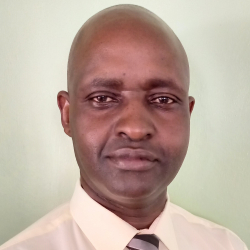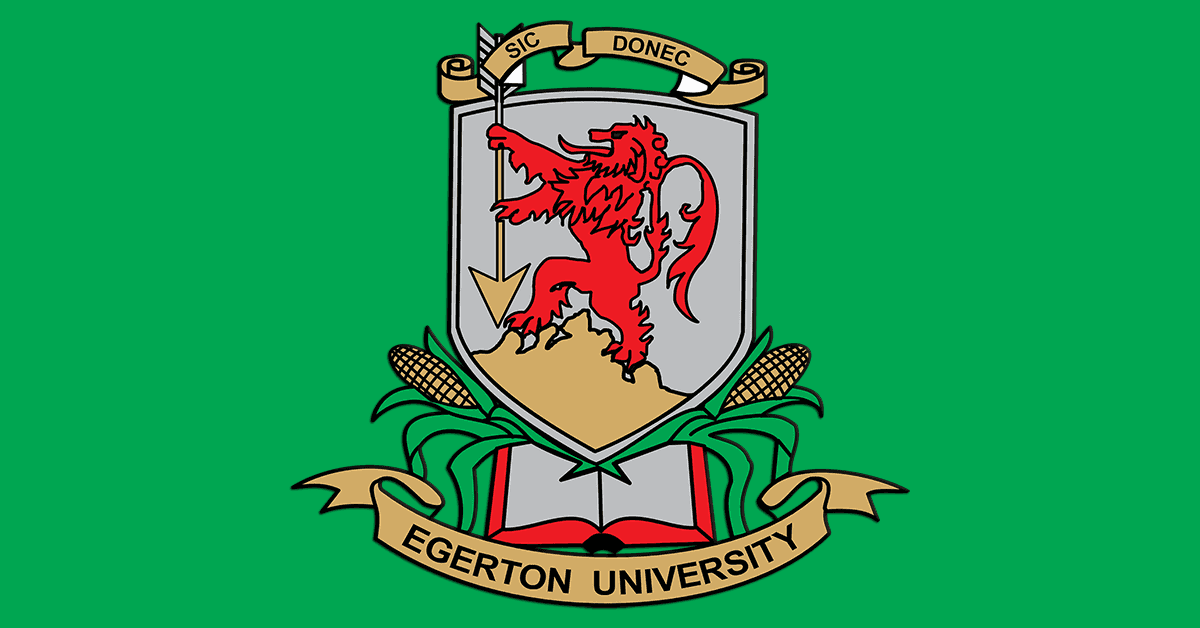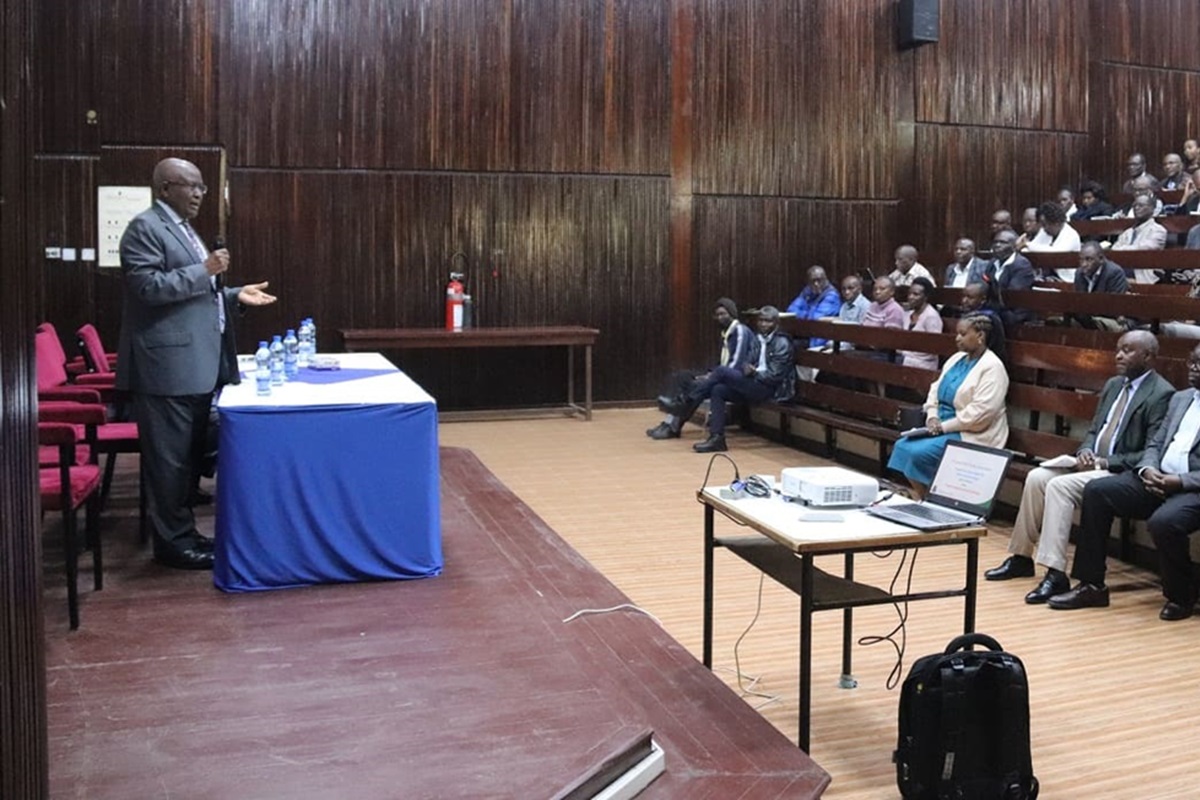
P.O.Box 536-20115 Egerton
E-mail: dvcre@egerton.ac.ke
About the Office of the Coordinator
Njoro River rehabilitation office was set up in the year 2012 under the Division of Research & Extension to coordinate rehabilitation activities of the Njoro River. The office is headed by Prof. Charles Mwithali M’Erimba. The project has other team members appointed by the DVC R&E depending on expertise.
Team members:
- Julius Kipkemboi – Wetland Ecologist
- StellaMaris Muthoka – Nutritionist
Activities of the office are guided by the University Strategic plan 2018-2023. The University Council sets yearly targets that are implemented through the Division of Research and Extension. The office of the DVC R&E monitors the implementation of the set performance contract targets on quarterly basis.
Introduction
Egerton University has been rehabilitating Mau Catchment for a decade by planting trees at Shururu area through the Faculty of Environment and Resource Development (FERD). In addition, the University committed itself in the year 2012 to rehabilitate and conserve Njoro River, which emanates from the same catchment. Njoro River has been degraded by the community that has encroached its riverbanks as well as the catchment area. It is the major source of water for Lake Nakuru and a shared resource by the community of Narok and Nakuku Counties. The University has been rehabilitating this river through planting of riparian tree seedlings, clearing of dump sites, controlled dumping of wastes and water quality monitoring. Other activities include support of community based initiatives such as establishment of tree nurseries, construction of livestock watering points, community trainings on environmental conservation, involvement of primary school pupils in rehabilitation and community sensitizations in Agricultural (ASK) shows among others.
Vision
A healthy river system by the year 2030
Mission
To improve the quantity, quality and flow conditions of the Njoro River to a level comparable to others worldwide.
Objectives
To restore the ecological status (health) of the Njoro River to a level comparable to that of nearby reference streams and make it self-sustaining as possible to minimize maintenance requirements.
The strategic objectives geared towards Njoro River are:-
- To establish the current ecological status of the river by collecting base line data
- To identify critical points that need immediate action and sensitizing the community on the need of rehabilitating the river
- To replant lost indigenous trees and partner with other stakeholders in the rehabilitation programme
- To minimize sediments and nutrient loading into the river
- To identify collaborators and partners in the rehabilitation process
- To continuously monitor and evaluate the progress of the rehabilitation programme
Core values
National unity; ii) Internationalism; iii) Passion for excellence; iv) Professionalism; v) Devotion to duty; vi) Integrity, transparency, and accountability; vii) Social fairness.
Activities:
- Identifying and planting appropriate riparian trees along the degraded sections of the Njoro River
- Securing degraded areas by fencing to avert further degradation
- Community support and sensitization on environmental conservation
- Monitoring water quality of the river
- Identification of collaborators and partners in the rehabilitation
- Documentation of the achievements of rehabilitation efforts







